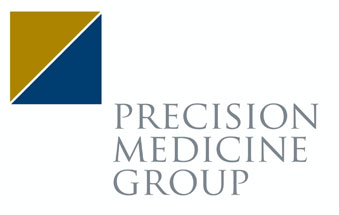Evercore’s Take on the State of SPACs
A couple weeks ago, Evercore published a white paper on the biotech SPAC market, which included the latest SPAC numbers/trends and described how SPACs are evolving as an alternative path to market vs. the traditional IPOs. A few takeaways:
For biotech and healthcare SPACs specifically, as of July 12:
- Biotech SPACs had raised $4.8B (including PIPEs) YTD, vs. ~$9B for traditional IPOs.
- 29 biotech-focused SPACs with $4.7B are searching for targets; 62 healthcare SPACs (including biotech) with $15.7B are searching for targets.
- Biotech SPACs took an average of 163 days to find a target company, and 102 days to close the deal.
- Overall, there has been no “typical” biotech SPAC target – companies have been diversified across stage, though only 3 (17%) were preclinical vs. 25% of traditional IPOs.
Comparing biotech SPACs to traditional biotech IPOs (and excluding Roivant, a large SPAC outlier):
- Average SPAC market cap: $654M vs. $700M for 2021 and 2021 IPOs;
- Average SPAC enterprise value (EV): $430M vs. $441M for IPOs;
- Net cash post-deal for SPACs: $224M vs. $259M for IPOs. This in some ways provides a major argument for SPACs vs IPO in that a well-funded SPAC can essentially replace a crossover/IPO (and the attendant dilution from the crossover discount).
SPACs are likely to remain a viable path to market for some companies; differences vs. a traditional IPO have narrowed.
- Selection of SPAC vs. IPO depends on the company strategy and timelines and specific risk considerations – no “wrong” decision.
- 8 key areas that matter most to target companies considering a SPAC: sponsor and PIPE investors’ brand, valuation, deal size, analyst coverage, timing/speed, confidence in the de-SPAC process and market visibility.
- As SPACs have become more mainstream, reverse mergers (with which they share some characteristics) appear a less attractive alternative.
Nasdaq, SVB, Citi, Goldman Sachs and Morgan Stanley Launch New Platform for Trading Private Company Stock
Earlier this week, Nasdaq, SVB, Citi, Goldman Sachs and Morgan Stanley announced a joint venture to establish a centralized secondary trading venue for private company stock designed to fulfill an unmet market demand by providing a more transparent process for private companies, employees and investors seeking access to private assets. The new venture, Nasdaq Private Markets, will spin out of Nasdaq and will receive strategic investments from SVB, Citi, Goldman Sachs and Morgan Stanley.
Private companies, brokers and investors will be able to manage and execute private company stock transactions through this global marketplace. Specifically, the platform will manage and support private company stock transactions including tender offers, buyside book-building, auctions, investor block trades, company directed windows of liquidity and pre-direct listing continuous trading. In addition, it will provide end-to-end settlement process management and an inter-broker global marketplace through its existing alternative trading system for all customers from employees to institutions to access and transact.
GHO Capital Partners Closes $2B+ Private Equity Fund
Earlier this week, GHO Capital Partners announced a more than $2B raise for its GHO Capital III fund. Since inception in 2014, GHO Capital has invested almost $3B into 14 platform companies in areas across the pharmaceutical, medtech, patient services and outsourced services space. The new fund will maintain GHO’s thematic healthcare focus.
Qiming Ventures into the Public Markets
Qiming announced this week that it is launching a new public equities unit, “Springhill Fund,” which will invest in listed companies in a variety of healthcare subsects with an initial regional focus in Greater China and Asia. This marks a strategic expansion for Qiming, who until now had served only as a venture investor, offering capital to around 370 health and tech-focused startups.
Market Update:
The overall markets were stable this week, with the NASDAQ, DJI and S&P 500 closing up 1%, down 0.5% and up 0.2%, respectively. The VIX closed up 4%, sitting at 17.7 as of market close on 7/22. The biotech markets slightly outperformed, with the NBI, XBI and BTK closing up 4%, 2% and 0.2%, respectively.
Continuing the trend of the past few weeks, biotech public capital markets have been highly active, with a handful of IPOs and follow-ons, including the following deals:
- IPOs: Caribou ($304M), Erasca ($345M), HCW Biologics ($56M), Imago BioSciences ($134.4M), Rapid Micro Biosystems ($158.4M), Sera Prognostics ($75M), Sight Sciences ($240M), TScan Therapeutics ($100M).
- Follow-ons: Acutus Medical ($77M), Celldex Therapeutics ($287.5M), Imara ($50M), Immunic ($45M), IMV Inc. ($25M), INmune Bio ($40M), IVERIC bio ($100M), LeMaitre Vascular ($54.5M).
In addition, there were numerous private financings, including:
- Amylyx (Series C, $135M); Anocca (Series B, $47M), Coave Therapeutics (Series B, €33.1M): Entos (Series A, $53M); Frontier Medicines (Series B, $88.5M); Hegaxon Bio (Series A, $47M); Kriya Therapeutics (Series B, $100M); MOBILion Systems (Series C, $60M); Muna Therapeutics (Series A, $73M); Neurogastrx (Series A, $45M); Nimbus Therapeutics (Undisclosed, $105M); PAQ Therapeutics (Series A, $30M); Stern IR Client Prime Medicine (Series A, $115M and Series B, $200M), Ribon Therapeutics (Series B, $65M); Shape Therapeutics (Series B, $112M); Slingshot (Series A, $23M), TMRW Life Sciences (Series C, $105M); Stern IR Client Turnstone Biologics (Series D, $80M), Stern IR Client Wugen (Series B, $172M), Vedanta (Series D, $68M).
Finally, we want to congratulate Stern IR Client Arvinas, which entered into a global collaboration with Pfizer to develop and commercialize ARV-471. The deal is valued in excess of $2 billion and includes an upfront payment to Arvinas of $650 million, a $350 million equity investment from Pfizer, $1.4 billion in potential milestone payments and shared profits worldwide.

